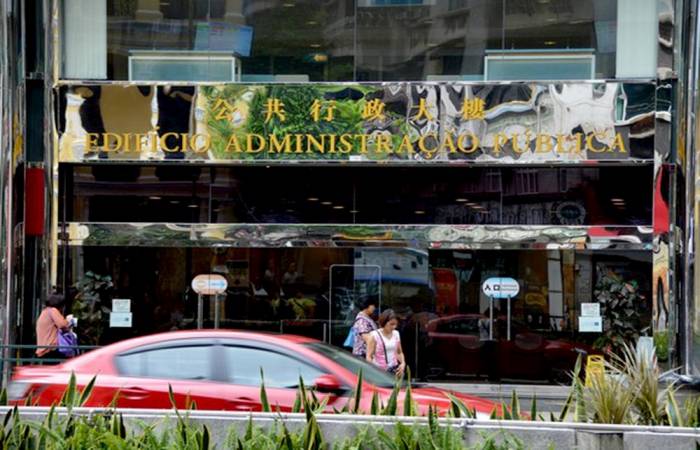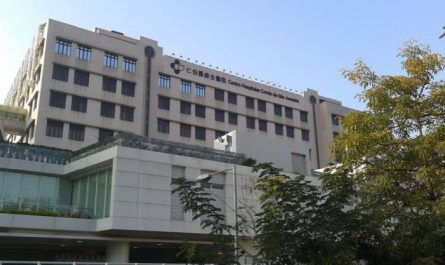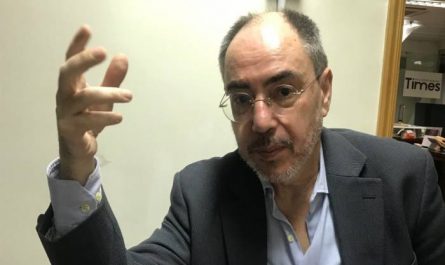In a hard-hitting report published on Tuesday, the Commission of Audit (CA) criticises the Public Administration and Civil Service Bureau (SAFP) for its “unreasonably low efficiency” in recruiting public servants for the public administration through its centralised recruitment method which has undergone various changes since 2011.
The commission slams the bureau for failing to foresee the possible difficulties in implementing its centralised recruitment rules over the past decade.
According to the audit report, in the early 2000s the government started to study the implementation of public servants recruitment for all government entities via a centralised recruitment system.
A law regulating public servants’ careers came into force in 2009, according to which the government has to recruit public servants for all public entities through a centralised recruitment method. According to the 2009 law, Macau’s public administration has 14 kinds of “general” positions and 20 kinds of “special positions — a total of 34 kinds of positions. Afterwards, the government drafted and implemented a now-defunct bylaw regulating its public servants’ centralised recruitment in 2011.
However, as the government at that time planned to implement centralised recruitment phase by phase, the chief executive drafted an executive order — which took effect at the same time as the 2011 by-law — stipulating that the public servants centralised recruitment would initially only be implemented for two kinds of positions — 1) senior specialist (known as “tecnico superior” in Portuguese) and 2) assistant specialist (adjunto tecnico).
Electronic drawing system
According to the report, under the 2011 recruitment system, residents wishing to work in the public administration had to join the centralised recruitment system carried out by the Public Administration and Civil Service Bureau. They only had to take one examination, after which the bureau would allocate applicants who had passed the exam to different government entities through an electronic drawing system. The report notes that under the system, applicants could not choose where they wished to work, and the relevant government entities could not refuse the applicants allocated by the Public Administration and Civil Service Bureau.
According to the report, under the 2011 recruitment system, government entities could continue to carry out their own recruitment for public servants for the other 32 kinds of positions.
In the report, the commission berates the bureau for having failed to recruit public servants meeting the requirements from various government entities via the 2011 recruitment system, before the implementation of a new public servants centralised recruitment system in 2016.
According to the data provided by the bureau to the commission, various government entities needed 1,185 senior specialists and 1,599 assistant specialists between 2012 and 2016. However, the bureau only recruited 183 senior specialists and 172 assistant specialists and allocated them to different entities via its centralised recruitment during this period. The bureau held only six examinations during the period. The bureau spent 5.5 million patacas on organising the examinations under the 2011 recruitment system, according to the report.
2 major issues
According to the report, the bureau realised that the 2011 recruitment system still could not solve two major issues — 1) the mismatch between recruited public servants and the government entities where they would have preferred to work and 2) the amount of time before recruited public servants were finally allocated to the relevant entities.
In its review of the 2011 recruitment system, the bureau said in 2015 that based on the then recruitment procedures, it was impossible for the bureau to implement the public servants centralised recruitment for all the 34 kinds of positions in a short period of time. With the aim of solving the two major issues, the bureau drafted and implemented a new by-law regulating its public servants centralised recruitment in 2016, replacing the 2011 recruitment system.
According to the report, under the 2016 recruitment system, the examinations under the centralised recruitment were divided into two parts. The first part was a comprehensive ability assessment process conducted by the Public Administration and Civil Service Bureau. The second part consisted of professional or occupational ability assessments conducted by the respective entities wishing to recruit public servants.
According to the report, the 2016 recruitment system was applicable to all 34 kinds of positions in the public administration. In the report, the commission lambastes the bureau also for its low efficiency in carrying out examinations under the 2016 recruitment system. The commission discovered that the bureau only conducted three comprehensive ability assessment examinations — for three kinds of positions — 1) senior specialist, 2) assistant specialist and 3) support staff (“auxiliar” in Portuguese).
The three examinations were for the planned recruitment of 369 vacancies required by a raft of government entities. However, the planned recruitment of the 369 vacancies required 146 professional or occupational ability assessment examinations conducted by the respective entities. According to the report, the commission discovered that as of October last year among the 146 planned examinations, only 79 were held and their results later announced, while 63 were held but their results have still not been announced, while four of the examinations never took place.
According to the report, under the 2016 recruitment system, after applicants had passed the comprehensive ability assessment examination, they could apply to sit the professional or occupational ability assessment examinations by as many government entities as they wanted. The report notes that therefore, even for the same kind of positions, an applicant could choose to apply to sit various examinations. Some applicants even chose to take all the examinations by all the entities that wanted to fill their respective vacancies of the same kind of positions.
87,068 applications
According to the Macau Post Daily, the report uses an example: 19 entities planned to recruit 75 assistant specialists in the area of general administrative support, which drew 5,756 jobseekers to take the 19 respective professional or occupational ability assessment examinations. However, as an applicant could choose to participate in multiple examinations, the 19 examinations resulted in 87,068 applications filed by the 5,756 job seekers.
According to the report, the 2016 recruitment system had two major problems – 1) repeated and duplicated applications by public service applicants and 2) the high recruitment cost by the various entities wishing to fill their vacancies.
Under the 2016 recruitment system, the issue of taking an excessively long time to recruit public servants continued to exist. According to the report, the government spent 31.6 million patacas on holding examinations for the recruitment of the three kinds of positions under the 2016 system.
In its concluding remarks, the report points out that the bureau started to study the implementation of the public servants centralised recruitment in 2006. However, according to the report, the bureau adopted the practice of experiential learning while planning and getting its measures off the ground at the same time. The report says that the audit findings showed that the recruitment method chosen by the bureau was of such a low efficiency that it could be described as “unreasonable”.
Chui’s order
According to a statement by the Government Spokesperson’s Office (GPV) on Tuesday, Chief Executive Fernando Chui Sai On is paying close attention to the audit report and has ordered Secretary for Administration and Justice Sonia Chan Hoi Fan to order the Public Administration and Civil Service Bureau to study and adopt the suggestions raised by the audit report and comprehensively review the existing problems in the current public servants recruitment system. The government’s Five-Year Development Plan (2016-2020) also states that the government will seriously review the drawbacks of the current centralised recruitment system and revise the relevant regulations so as to streamline its recruitment process, the statement noted.



